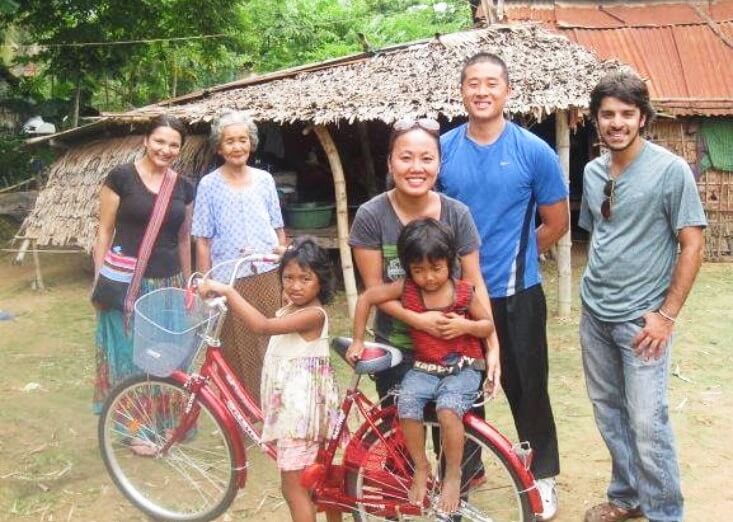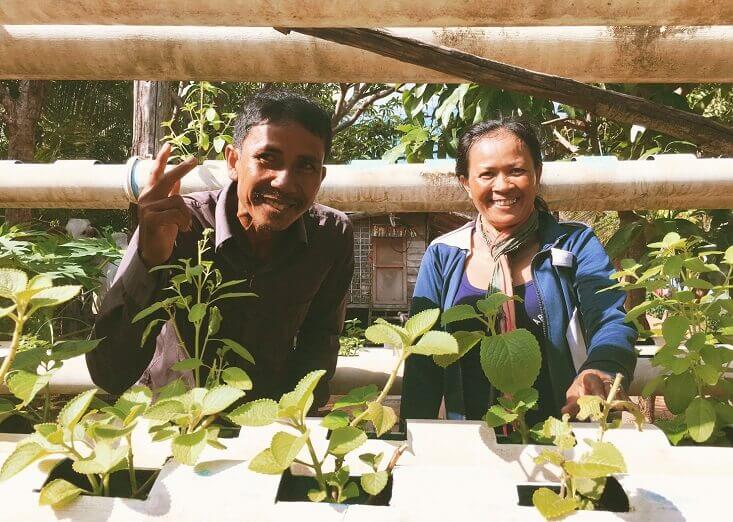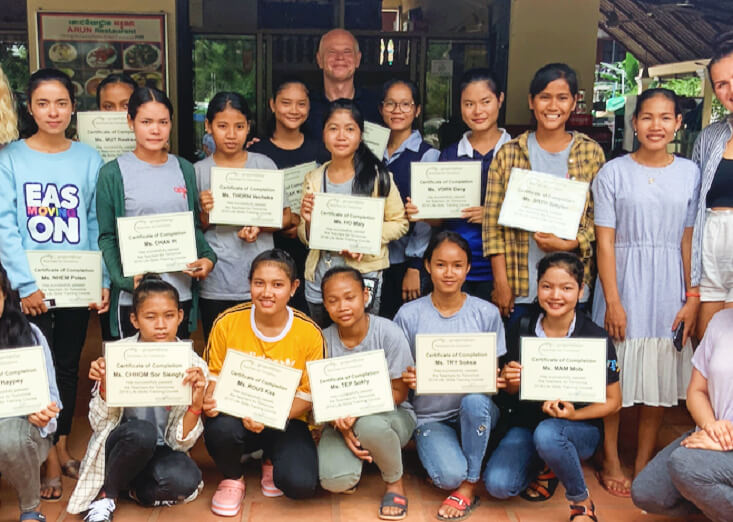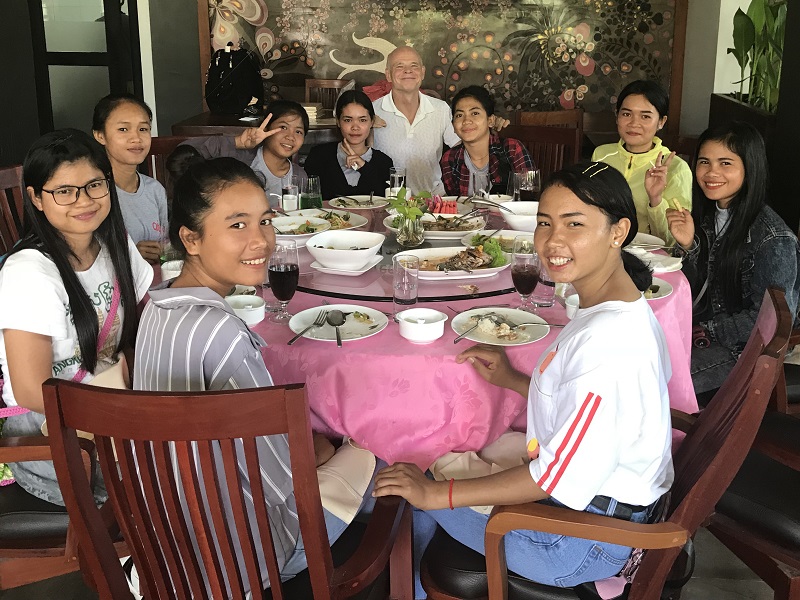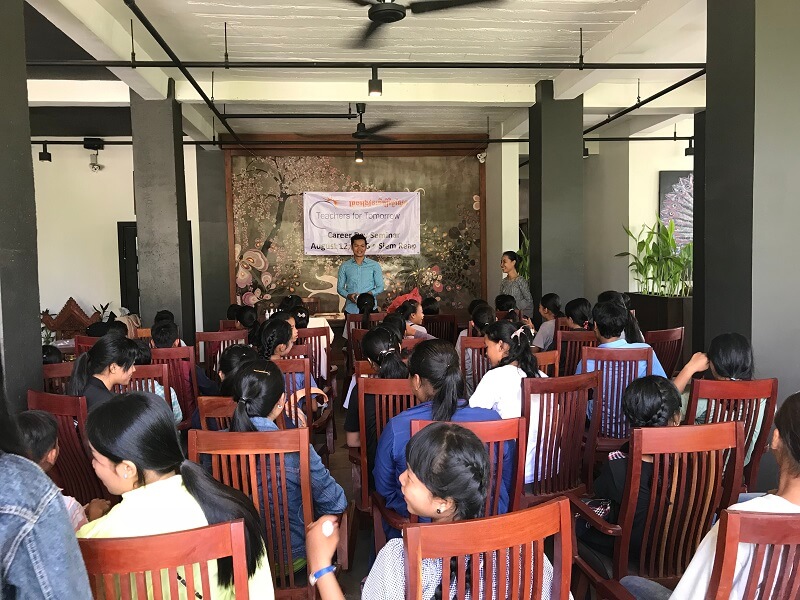Though the years of working with the local communities in rural Cambodia, we found that one of the biggest challenges that discourages parents to send children to school is insufficient income. Lacking money, parents cannot afford education-related costs and tend to make children stay at home or work in the rice fields, where intensive labors are necessary and members have to travel a long distance from home to work in the paddies.
Rice farming is also highly seasonal, leaving families with little-to-no income half of the year. After various trials and tested programs, we found that helping families to build a vegetable garden is an effective way to provide additional income to the families because the program uses agricultural knowledge they already have. With a little training and provided knowledge, villagers can adapt and grow vegetables that can be sold all year round, and spend less time taking care of the garden located at their homes
The garden also helps provide a supplemental nutrition source. Since most families only eat rice with very little added protein, vitamins, or minerals to their meals.
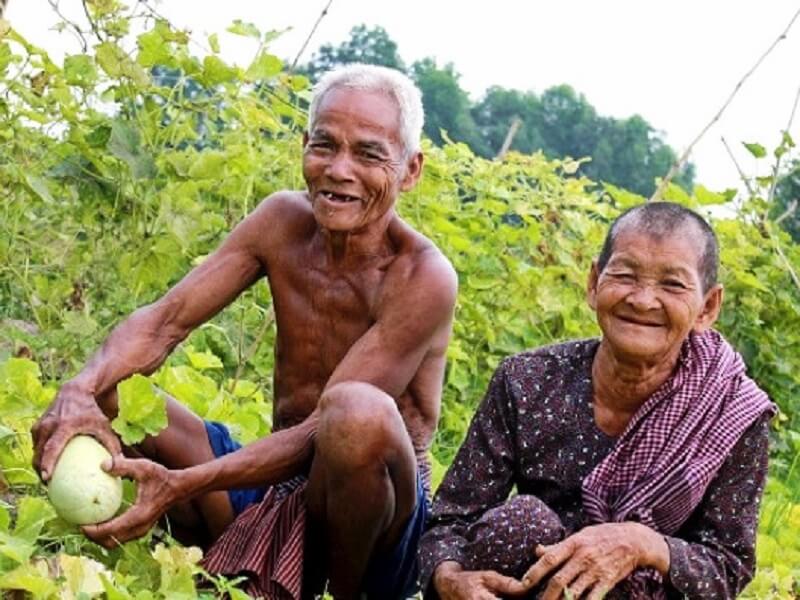
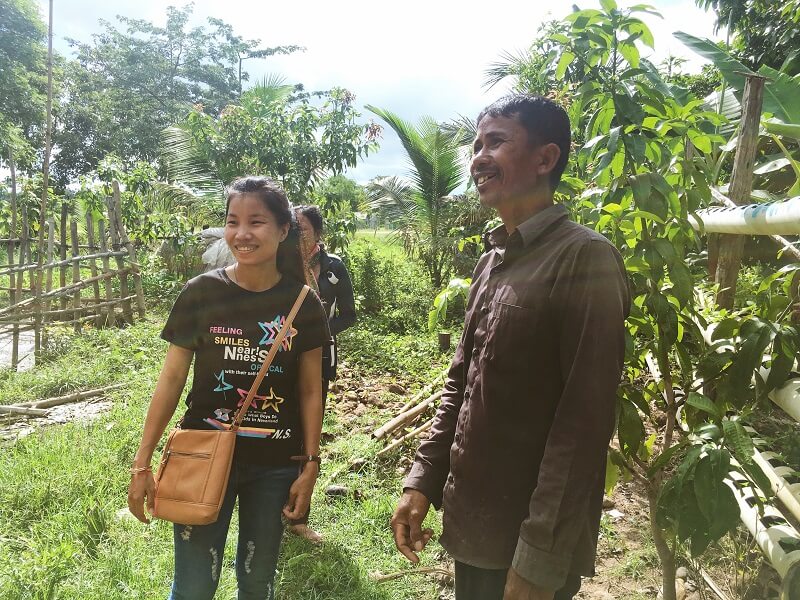
The Garden Design & Construction:
The Design
Depending on the location and households, we built vertical piped gardens and horizontal raised bed gardens. For the recent projects, we implemented more of the horizontal design due to a number of key practical advantages.
The Four Raised Bed Gardens
For the horizontal garden, each family will receive a "pod" of four raised garden boxes. The bed is raised to avoid a seasonal flood. Two of these garden boxes will be planned for use by the family for its own consumption, while the other two will be for commercial purposes.
Development & Construction
We developed the program through our local staff who help to select the families, arranging for construction materials, to buy seeds & fertilizers, to provide training as well as occasional visits for the update. The construction is made either via local construction workers, the family members, or volunteers who joined the building challenge.
Seeds & Plants Selection
With the advice of and under supervision from our local staff coordinators, the family may decide what vegetables to plant for its own needs, while TFT will decide which types of vegetables to plant in the two commercial boxes from the knowledge of market needs and our past findings.
** Fore more information about the building challenge program for students and volunteers, please read here.
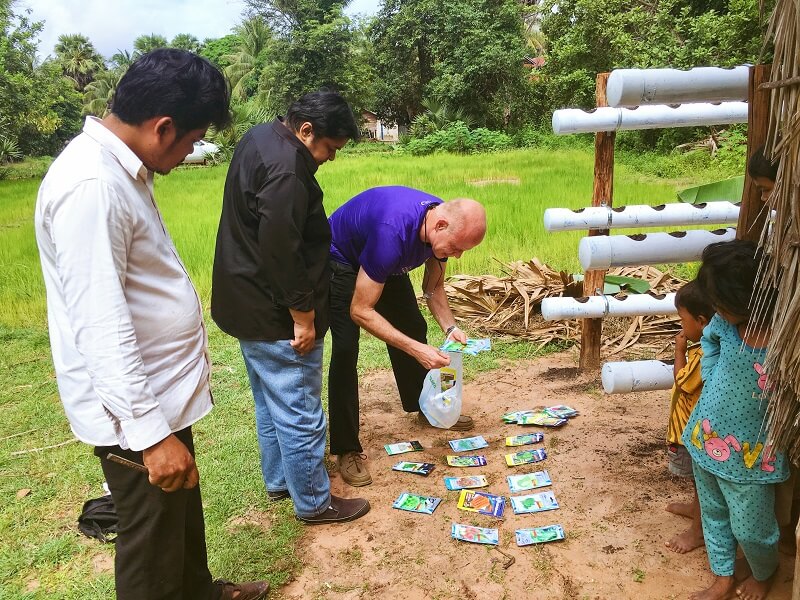
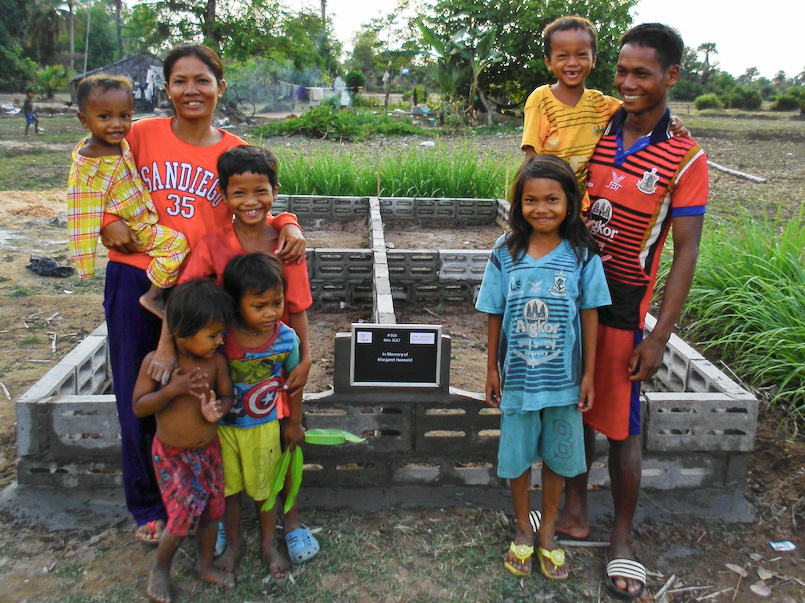

Findings and Future Development:
- Based on our research thus far, our unique selling proposition to restaurants and hotels is that it is 100 percent organic and local, and that it supports poor families and villages. Given this selling proposition, our target partners would include restaurants and hotels that are interested in a CSR-type of proposition. There is also an opportunity to ask the hotels and restaurants to donate their own organic waste for composting. There is also a possibility of building composting boxes in each village that can be used to create compost for the planting boxes.
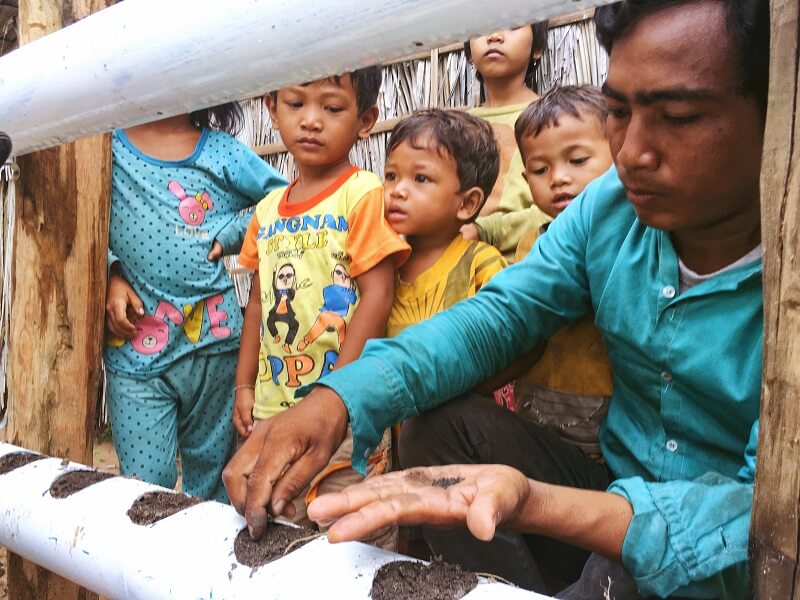
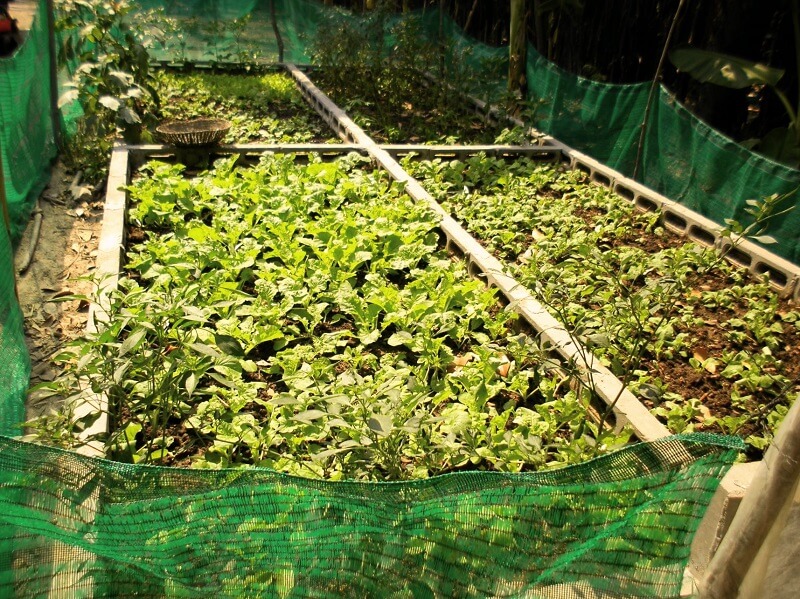
Sponsorship Models
For this model, you can help to build vegetable gardens that families who are in difficult situations and in need of your support will receive. We will build a set of four raised garden boxes with seeds, fertilizers, and staff coordinators to give training and assist the family. You can click the button below and choose a donation option from the following:
– Donate $25 USD
– Donate $50 USD
– Donate $100 USD
More Information here
